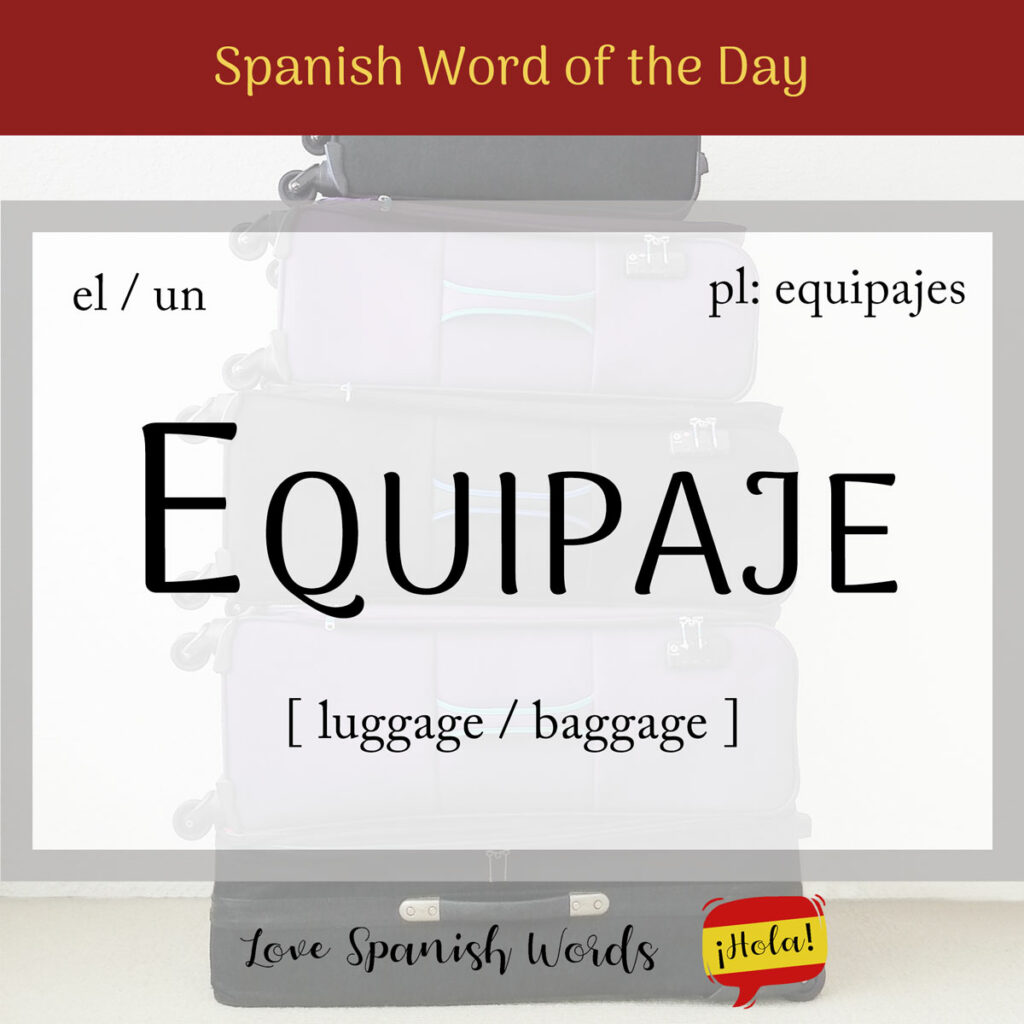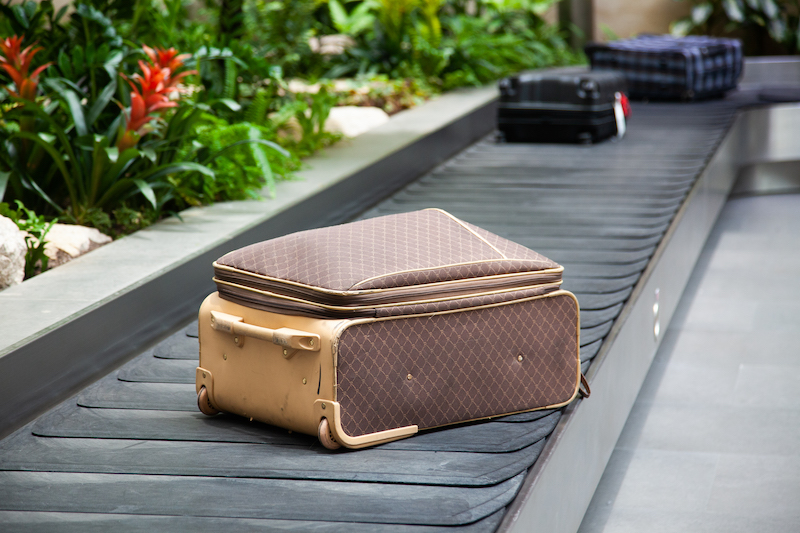The Spanish masculine noun equipaje means luggage and baggage in English. It comes from the French word equiper which originally meant to embark. The word later took on a different definition, which is to equip.
Originally, the definition was more closely related to boarding a ship, as the term equiper is derived from the Germanic word skip, which means ship in English and barco in Spanish. The French word embarque (embark) can be broken down into em- meaning in and barque meaning small boat.
Since the word now means to equip, the Spanish word equipaje refers to all the packing items used to equip someone to embarcar (embark) on a new journey whether on a ship or any other type of transportation. These packing items are what we call luggage and baggage in English.
Latin American Pronunciation
European Pronunciation

Equipaje is a collective noun because it refers to a group of objects. In this case, it’s a group of objects put together for a trip to carry things in, such as suitcases, backpacks, and bags. A synonym of the word is bagaje, but equipaje is much more commonly used.
It is a masculine noun that takes the following definite and indefinite articles:
- el equipaje = the luggage
- los equipajes = the luggage or the pieces of luggage if referring to multiple items, but “luggage” is typically uncountable in English
- un equipaje = a piece of luggage
- unos equipajes = some pieces of luggage
A second but rare use of this word in Spanish is equipaje meaning flight crew. Tripulación is the word typically used instead.
In Spanish, the suffix -aje means to take action or effect. A handful of words with this suffix are related to travel. Some examples include aterrizaje (landing), peaje (toll), abordaje (boarding), pasaje (passage/boarding pass), and viaje (journey/trip).
La aerolínea perdió mi equipaje.
The airline lost my luggage.
Some words and expressions that use equipaje include:
- exceso de equipaje = excess baggage
- retirar el equipaje = remove luggage
- hacer el equipaje = pack your luggage
- equipaje de mano = hand/carry-on luggage
- pieza de equipaje = piece of luggage
- franquicia de equipaje = baggage allowance
- equipaje acompañado = accompanied luggage
- ligero de equipaje = light luggage
- etiqueta de equipaje = luggage tag
- equipaje a cuestas = luggage in tow
- facturar el equipaje = check luggage
- reclamo de equipaje = baggage claim
This collective noun refers to the items travelers use to pack or travel with. Some words related to luggage and baggage are maleta/valija (suitcase), maletín (briefcase), bolsa/morral (bag), pertenencias (belongings), mochilas (backpacks), bolsa de mano (hand bags), bolsa de viaje (travel bags), cajas (boxes), and baúl (trunk).
Some of the most important things people pack in their equipaje are ropa (clothing), calzado (footwear), productos de higiene personal (higiene products), artículos relacionados con el ocio (leisure articles), documentación (documentation), and electrónicos (electronics).
Empaqué demasiadas cosas en mi equipaje.
I packed way too many things in my luggage.
In English, we use the term emotional baggage to refer to collective problems and trauma related to the emotions we carry from the past. This metaphor is also used in Spanish – equipaje emocional and bagaje emocional. However, it’s more common to say carga emocional (emotional load).
La mujer quiere resolver su equipaje emocional antes de iniciar una nueva relación.
The woman wants to deal with her emotional baggage before entering a new relationship.

Spanish idiomatic expressions featuring ‘equipaje’
Irse con bolsa y equipaje
Literal translation: to leave with bags and luggage
English meaning: to leave a place with all your belongings (to take even the smallest, most insignificant thing with you)

